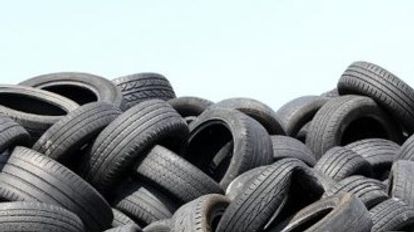
Business beyond compliance: The need for human rights action
by Heba Megahed, Miguel Oyarbide
View post

Earlier this year Euan Munro (Principal Process Engineer / Energy Transition Lead (Europe)) penned an article on the concept of Inherent Sustainability. One of the first principals involved in making inherently sustainable decisions is carrying out a life cycle assessment (LCA); a thorough LCA will help you to determine a product or process's environmental impacts, from extraction of raw materials to disposal. This should be considered early in the development of a project and should also be carried out during any options assessments.
For businesses looking to explore LCAs and the benefits they can deliver, the article below shares more details about concept, practice, and project examples.
Owing to the rise in incorrect environmental claims and ‘green washing’, in recent times LCAs have garnered a lot of attention in the press and public, having mostly been the domain of academia previously. These controversies highlight the importance of adopting robust, proven approaches to LCAs. But what is an LCA?
In our day-to-day lives, most of us try to reduce our impact on the planet – however we have limited foresight of unforeseen consequences across the lifecycle of the products we use. For example, you could buy an electric car in hopes of reducing carbon emissions from the use of the car, but the manufacturing stage of the batteries involves mining minerals that cause pollution and could be sourced unethically. Similarly, you could switch to a plant-based diet to better the environment but eat much more soy, which is imported from overseas.

An LCA study in these instances would empower you with the knowledge to make more reasoned and ultimately sustainable choices. It does this by quantifying the environmental (and sometimes social) impacts of a product or service across its entire lifetime, usually against multiple criteria.
Each LCA study is unique and tailored to the client’s objectives, which affect the scope of the LCA. For instance, one might choose to adopt a ‘cradle to grave approach’ which assesses all stages from raw material to disposal. The most comprehensive approach would be ‘cradle to cradle’ which assess all life-cycle stages, up to the point of re-use, meaning the entire environmental impact of the product is revealed. For those seeking a more simple and cost-effective approach, a ‘cradle to gate’ outlook should be adopted, this measures the impacts from the raw material extraction stage to the manufacturer’s gate.
The scope is not the only defining feature of an LCA, as the type of LCA will dictate the number of requirements the LCA will have. An LCA conducted for internal purposes will have less stringent requirements than one used for external communications, which should adhere to International Organisation for Standardisation (ISO) standards 14040 and 14044 as best practice. ISO 14040 sets out the key features and phases of the LCA including scope, inventory analysis, an assessment of the environmental impacts and interpretation of results. The requirements of the phases themselves are set out in ISO 14044. LCA’s used for marketing purposes will have to follow further ISO sub standards which set out guidelines and definitions for environmental claims regarding products / services, to ensure transparent methodology and reporting.
While LCAs can’t see into all the details of each decision in everyday life, at a higher level they can help to understand the bigger picture and make more informed decisions on changes that organisations make.
LCAs are a powerful tool that have a diverse range of applications and can be used to inform decision making in industry, government, and non-government bodies alike.
Some clients, for instance, may use the results to make comparative claims about the benefits of their products – e.g. being ‘green’ or ‘environmentally friendly’. These claims serve not only to differentiate their products in the marketplace but also to communicate their commitment to sustainability to consumers and stakeholders. More recently it’s a baseline that most consumers expect them to meet. Through transparent and credible data-driven comparisons, businesses can effectively showcase the environmental benefits of their products and reinforce their brand's position as a leader in sustainable practices.
Other clients may wish to identify the ‘hot spots’ in their life cycle, so that interventions can be made to eliminate or reduce negative impacts. This targeted approach not only improves environmental performance but can also enhance operational efficiency, reduce costs, and enhance brand reputation as a responsible steward of the environment. Moreover, by continually monitoring and reassessing these hot spots over time, companies can continue to adapt and evolve their sustainability strategies to address emerging challenges and opportunities in their supply chains and operations.
Alternatively, stakeholders (including investors, consumers, and community groups) increasingly demand transparency and accountability regarding environmental performance. LCAs serve as a robust mechanism for generating credible data and insights in response to these requests.
In general, LCAs can aid in supporting regulatory compliance. Many industries and regions of the world have, or are in the process of, bringing in specific regulations that mandate or encourage the LCAs for products or supply chain processes. For example, Environmental Product Declarations (EPDs) are standardised documents that provide transparent and verified information about the environmental impacts of a product throughout its lifecycle. Many countries and regions have developed EPD programs that encourage or require LCAs for certain product categories, such as construction materials or waste packaging.

SLR’s LCA team have practical experience in delivering studies on an extremely wide range of products, technologies, and services. We understand the reputational risks and benefits, and that there is no ‘one size fits all’ approach for LCA, so each project is carefully tailored during commissioning to ensure we deliver on your specific goals, as efficiently as possible.
One such project involves an investment company that commissioned SLR to evaluate the environmental implications of various end-of-life management options for scrap vehicle tires. Specifically, the company aimed to compare the traditional disposal methods, such as shipping to Asia for reprocessing or utilisation as fuel in cement kilns, with proposed pyrolysis treatment used to produce carbon black, pyrolysis oil, and scrap steel.
The best way to compare such alternative treatment fates is an LCA, from point of waste arising until the tyres have been reprocessed. SLR collected data from the technology provider and supplemented this with information from our proprietary databases. The data was collated into a complete life cycle inventory of all the materials, energy, products, wastes and emissions for each scenario. SLR then applied characterisation factors for a suite of 21 environmental indicators, to deliver a complete picture of the impacts of each fate on each of those indicators.
SLR was able to reveal to the investment company the relative performance of the pyrolysis technology, in comparison to the existing alternatives, across all 21 indicators. Moreover, the analysis revealed where the ‘hot spots’ lay that had the biggest influence on the results. Sensitivity analysis around the associated parameters and assumptions for those ‘hot spots’ revealed how robust the initial conclusions were, enabling SLR to provide a clear steer to the client on our certainty around the results presented. Our findings informed the client’s decision around the next steps in their investment strategy.
LCAs represent more than just a methodological tool, they embody a commitment to overcome sustainability challenges and introduce informed decision-making. As businesses navigate an increasingly complex landscape of environmental challenges and opportunities, the value of LCAs in guiding responsible action and optimising resource use, as well as mitigating risks, cannot be overstated. Get in touch to see how SLR’s LCA team can support your sustainability objectives.
This article was written by Becca Shaikh and Euan Munro

by Heba Megahed, Miguel Oyarbide

